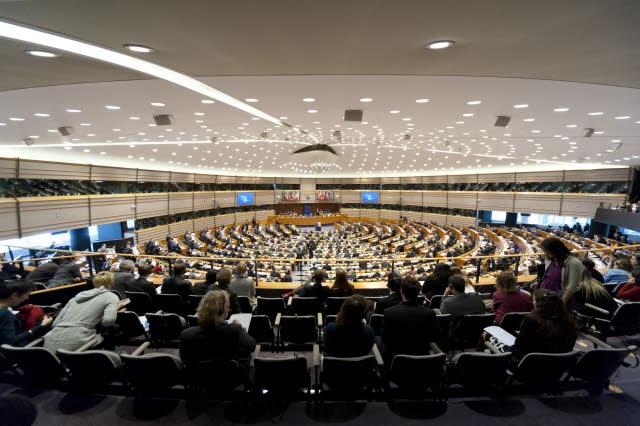
Bruxelles - The European Commission wants to ensure that Croatia is prepared as well as possible for the absorption of EU funds and wants preparations to be speeded up so that no time is wasted, Commissioner for Regional Policy Johannes Hahn said on Thursday.
Speaking to a group of Croatian reporters in Brussels after his visit to Zagreb, Hahn said that Croatia would be one of his main areas of activity until the end of his term in the Commission.
That is our duty, and I am personally strongly involved and committed to Croatia's accession because I come from Austria and our interest is that the entire accession process and everything that goes with it passes in the best possible way. Cohesion policy is a challenge to each member state, especially to a new member, Hahn said.
As main challenges facing Croatia, Hahn cited the need to improve the capacity to absorb EU funds and to keep people specialised in project preparation and implementation. Croatia could draw slightly over 8 billion euros from the EU's cohesion fund in the 2014-2020 period.
I visited Croatia twice last year and one of the main issues was the absorption capacity. I have to say that things have in the meantime improved considerably, the commissioner said, welcoming the government's plan to hire 232 specialists to work on projects. He added that the government should apply for money from EU structural funds for bonuses for project specialists in order to keep them in public administration, which he said could hardly compete with the private sector in paying highly-specialised people.
Hahn said that a brain drain would be a major challenge to both the EU and Croatia in the coming period and that he had discussed the matter with President Ivo Josipovic. In that regard Hahn said that firm cooperation between the structural funds and the EU's framework programme for research and development, called Horizon 2020, would be established for the first time in the next programme period of 2014-2020 in order to attract scientists to work in countries that had not been known for their research work. He said that Croatia could offer Croatian researchers working abroad to return to the country and ensure them adequate work conditions.
Last month the Commission prepared a position paper outlining its views on which areas Croatia should focus in drawing EU funds in the next seven-year budget period. The position paper serves as the basis for dialogue with the Croatian government, and Hahn said it was now up to the government to define its position.
The result of talks between the Commission and each member state will be a Partnership Agreement, a framework document to be prepared by the national authorities defining main areas that would be financed from the EU's cohesion and structural funds.
Hahn said that Croatia was being treated as a full member, noting that his services had recommended that Croatia be asked to present a draft Partnership Agreement in November, but that he had shifted it to June.
I said that Croatia, like all member states, should submit a draft Partnership Agreement by the end of June because we don't want to waste time, and time is money. It's a big challenge for Croatian administration, but it will be worth it. What is important is that Croatian citizens see the benefits of EU membership as soon as possible, the commissioner said.
Hahn highlighted the importance of developing strategies for individual areas, such as a strategy for the development of the ports of Rijeka and Ploce, which should be included in a wider transport strategy. By insisting on the preparation of such strategies the Commission wants to avoid mistakes that were made before, when some projects in EU member states did not bring great added value.
Hahn would not discuss the regional structure of Croatia, saying that according to the principle of subsidiarity it was a matter of each member state. He, however, noted that good coordination between the authorities at the national level and those at the regional and local levels was necessary, citing Poland as an example.
We in Brussels cannot say we know the situation better than people in Croatia, but my experience tells me that it is better when an administrative structure is created in existing regions rather than in artificial ones, he said.
Hahn said that projects should be managed and carried out in a decentralised manner because it was impossible to monitor them all from Brussels. He said that over two million projects would be implemented across the Union in the present 2007-2013 programme period alone.
Therefore, the management and implementation of projects worth up to 50 million euros (and in case of transport projects up to 75 million euros) are left to member states and regions, while projects exceeding those amounts must be approved by the European Commission.
When asked about the construction of a Peljesac bridge, Hahn said that a pre-feasibility study would be finished by this summer. We have to see what the result of that study will be, whether it will include Bosnia and Herzegovina or not. Depending on its result, certain political issues will possibly need to be clarified. We need that study and it is not a waste of time but part of the preparatory work for a final solution, whatever it may be, Hahn said.
The study, which is financed by the Directorate General for Enlargement, should find the best way to connect the southernmost tip of Croatia with the rest of the country -- building a bridge between the mainland and the Peljesac peninsula to bypass the Bosnian coastal town of Neum, building a corridor through Neum, establishing a ferry service or some other solution. (Hina

.png)
